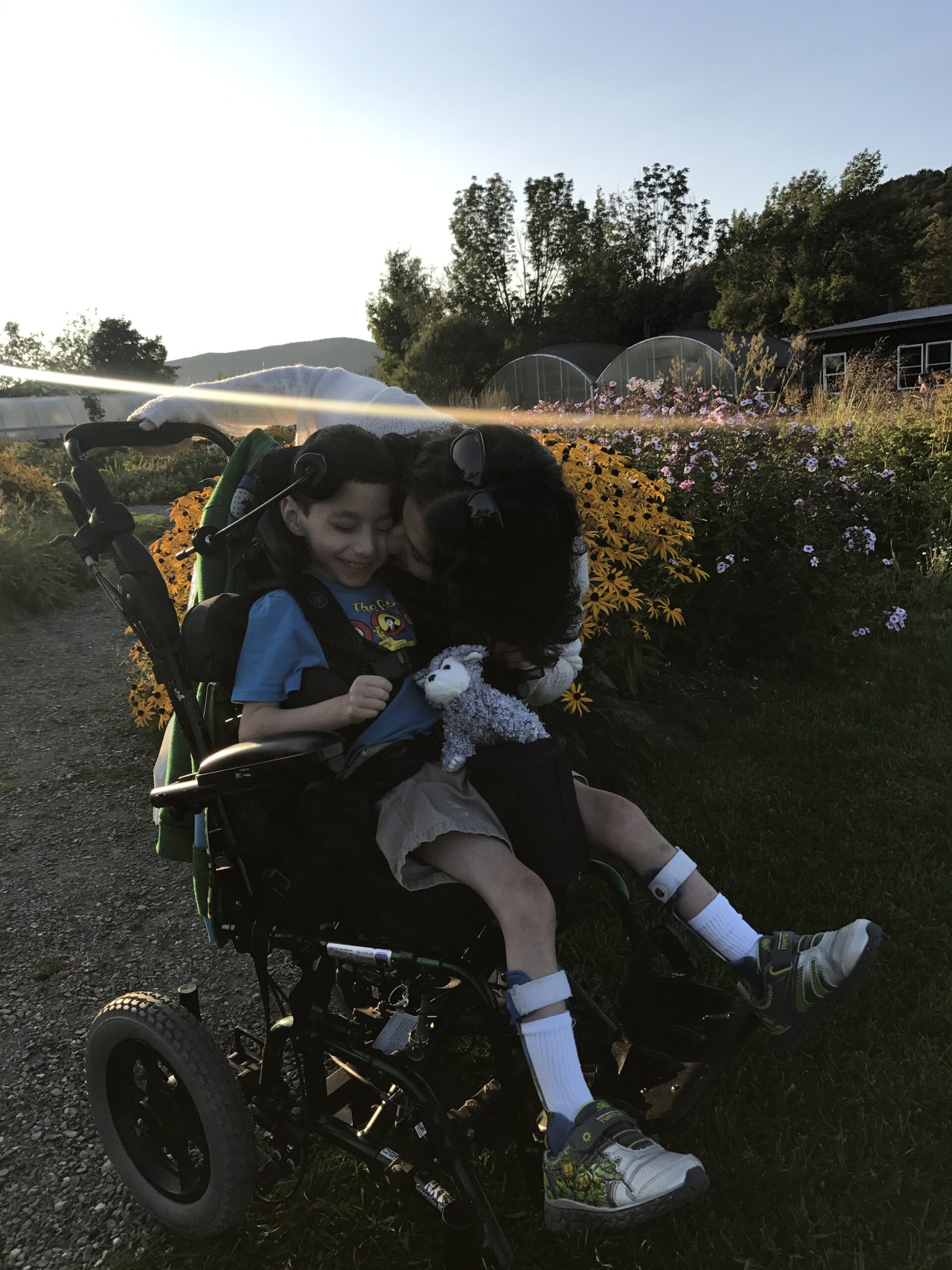Before reading on, pause for a moment. Gaze out a window or toward any nearby glimpse of nature—the sky, a tree, a flower on your windowsill. Let your attention rest there for just forty seconds.
Now, check in with yourself. How do you feel? What has shifted in your body, your thoughts, or your mood? That small moment of connection might have given you a little more clarity or ease. Research confirms it—just forty seconds of looking at a nature view can increase focus and reduce stress. If you added a gentle awareness of your breath, you experienced a power-packed moment of restoration.
The beautiful thing is, this kind of nourishment isn’t dependent on the weather, your energy level, or whether you can get outside. It’s available to you, right where you are.
When we expand our idea of nature—from pristine wilderness to the tree outside the grocery store or the houseplant on your windowsill—a new world opens up. A world of micro-moments of support, restoration and connection.
This is an invitation to partner with nature for your health, healing and well-being.

Nature as Medicine
What is medicine? At its heart, medicine is anything that shifts our state toward greater well-being—whether that shift happens in the body, mind, emotions, or even at the level of the soul. Medicine can be preventive, helping us build resilience and stay balanced, or curative, supporting us through pain, stress or illness.
Nature does both.
And the most astonishing part? Nature’s medicine doesn’t require effort. We don’t have to climb a mountain or meditate in a redwood forest. Simply resting our attention on a tree swaying in the wind, or feeling sunlight through a window, can activate our parasympathetic nervous system—the one that says, It’s safe to slow down. You can rest here.
Research backs this up. From salivary cortisol tests and fMRIs to mood state assessments, study after study confirms that being with nature can reduce anxiety and depression, lower blood pressure, enhance immune function and shift mood. But beyond the science is something deeper: a felt remembrance that we are part of something larger. That we belong.
Restorative Micro-Practices
Micro-practices are small, doable moments of reconnection. They’re perfect for busy days, low-energy times, or when you want to bring more grounding and clarity into your everyday life.
Nature can be the antidote to the constant noise, urgency and distraction of the modern world. We all need a daily dose. I like to put these moments in the same category as brushing your teeth or eating nourishing meals—it’s that essential.
One of the simplest ways to start is to weave nature into things you already do. That morning cup of coffee? Try drinking it while looking out the window instead of at your phone. Author S.J. Scott calls this “habit stacking”—taking something that’s already part of your routine and adding a touch of intentionality.
As you move outside your door, pause. Look around the landscape you’re in. Nature isn’t static—it’s alive and always changing. If we slow down, we begin to notice the shifting light, the life cycles of plants, the rhythm of the seasons. In that pause, we can experience a moment of restoration before moving on with our day.
Even bringing activities you already do indoors—like writing, stretching, or reading—into an outdoor setting can become a nourishing practice. I’m writing this on my porch right now, with a fan blowing to keep the heat and mosquitoes at bay. You don’t need a perfect environment—I find I’m much more creative and focused at my outdoor desk than when confined by four walls.
You might even grow a simple herb like lemon balm. She’s gentle, calming to the nervous system and thrives in containers. She can live outside or near a sunny window. Tending to her, and making tea from her leaves, becomes not only a sensory delight but a healing relationship.
Restorative Macro-Practices
Macro-practices are the extended version—longer or deeper experiences with nature that offer a reset. These might be half a day in the park without your phone on silence, a visit to an accessible botanical garden, or a weekend in a cabin near the trees. They help us remember what it feels like to truly rest.
If you’re looking to go deeper, I recommend exploring wheelchairtraveling.com, founded by the amazing Ashley Lyn Olson. It’s a rich resource for accessible outdoor experiences, full of honest, empowering guidance for exploring nature in ways that meet your needs.
The most important thing when choosing a location is how it makes you feel. You deserve to be in a space that feels safe and supported. That’s when your nervous system can truly exhale, and your connection with the natural world can deepen.
Nature’s Ongoing Invitation
Whether in a moment of pause or an extended visit, the magic ingredient is your attention. Nature will call you back to presence again and again—the sound of a bird, the cool air on your skin, the way the light moves across the floor.
You don’t have to go far. You don’t have to be in a particular body or ability level. You don’t need special gear or perfect weather.
You only need the intention to notice.
And from there, nature does the rest.
About the Author
Katheleen McIntyre, LCSWA is a somatic and nature-based therapist whose work with individuals and groups lives at the intersection of the body’s wisdom and the healing power of the natural world. As co-founder of NatureSoma.com, author of The Nature Reset, and an international retreat leader, she supports the reclamation of a felt sense of belonging and connection—both within and with nature. Explore more at https://naturesoma.com/abilities-expo/






